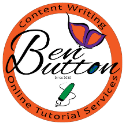Ever found yourself stuck, trying to write but unable to find the right words? It is writer’s block. All writers (including me) struggle with it anytime. But the good news is, there are productivity hacks you can try when you run out of words.
Try any of these 10 productivity hacks to get your creative juices flowing.
Overcoming Writer’s Block: 10 Productivity Hacks
1. Get Enough Sleep
Enough sleep is one productivity hack that enhances your writing and propels creativity.
In a study referenced in National Geographic Daily News, people who took naps that plunged them into REM sleep performed better on creativity-oriented word problems.
When you run out of words, think about it as you fall asleep. You will be surprised the following day, and you wake up with a solution. Indeed, sleep is an essential part of the writing process.
Nonetheless, Sleep Deprivation is when you don’t get the sleep you need. It affects memory and leads to some significant cognition (thinking) issues. Also, your creative juices wane, which can lead to writer’s block.
Read more here:
Twelve Simple Tips to Improve Your Sleep
2. Switch Gears
When stuck, work on another creative project for a few hours and then go back to writing. You can try painting, design images in Photoshop/Canva, or solve a puzzle. Jumping to other projects activates your imagination. The key is to keep exercising the creative part of your brain. Eventually, you’ll tap back into the flow of writing.
3. Do freewriting
You don’t get better at anything without practice. Same is true with writing.
Allocate 15 minutes or more a day, writing whatever comes off your mind. Don’t worry about grammar, punctuation, or spelling. Just write freely.
Allow it to be random to get your thoughts out, and then immediately return to writing your article. In effect, this process trains your brain to tap into the words inside your head.
4. Move your body
Dance, practice yoga, meditate and take long, deep breaths. It may sound funny, but when you get your body into the flow, your mind follows. A relaxed mind is more open and imaginative. Therefore, you can focus longer when you are in a peaceful state, then return to writing in a more creative form.
5. Eliminate distractions
Turn off your phone, declutter your workspace. A messy desk puts the mind in a state of disorder. Reserve a time in your schedule just for writing—at least three to four hours.
Ask loved ones to honor your space so you can write without distractions or write when everyone in the house is sleeping. Giving yourself time and space to be in solitude is vital to staying focused.
6. Write early in the morning
Did you know that you’re more inventive when you’re not fully awake? Research shows that you’re most open to possibilities when your conscious mind is loading, and your unconscious mind is still on duty.
Moreover, scientifically, we tend to be more creative when we’re sleepy because we’re less focused. Relaxing our focus allows us to see a spectrum of possibilities that we often dismiss when we’re wide awake and concentrated.
7. Read a Lot
An essential productivity hack of all time is reading.
Read everything you can get your hands on. Reading is like filling your mind with buckets full of words. Moreover, it will help you grow your vocabulary and wealth of knowledge you can tap when you come up empty.
8. Take a walk
According to Orson Scott Card, author of Ender’s Game,walking is a proven writing strategy that can boost ingenuity and gives your ideas some legs. This productivity hack improves your ability to think more creatively and allow your conscious mind to access fresh ideas that are buried in the subconscious.
Hence, It’s through the act of walking that a writer is able to shake free those information settling in our brains to pave the flow of words. Besides, it’s free and easy to do.
9. Do More Research
When the writing gets tough, it could mean that the research isn’t fully baked. For this reason, it is best to check if all the pre-works are done. If you are writing a well-researched article and have everything ready, you won’t get stuck and run out of words to say.
10. Skip the introduction
Writing your conclusion first will determine what outcome you’re hoping to achieve. It’s also much easier to write your introduction when you know where you’re going. Thereby, it’s hard to get lost and run out of words.
If you want to keep your words free-flowing, apply any of the above productivity hacks.
Are you interested in learning more about content writing? Check THE BEN BUTTON CONTENT WRITING COURSE.
References:
https://www.apa.org/pubs/journals/releases/xlm-a0036577.pdf
https://nicolebianchi.medium.com/how-a-daily-walk-can-boost-your-creativity-a29a236582d
https://the-artifice.com/walking-writing/
https://greatergood.berkeley.edu/article/item/why_your_brain_needs_to_dream
https://writingcooperative.com/sleep-and-writing-how-are-they-connected-ed20e88c3328
https://learningcenter.unc.edu/tips-and-tools/sleeping-to-succeed/https://writersrelief.com/2013/07/05/improve-your-writing-in-your-sleep/
https://my.clevelandclinic.org/health/articles/12148-sleep-basics
https://www.sleepfoundation.org/sleep-deprivation
https://www.betterhealth.vic.gov.au/health/conditionsandtreatments/sleep-deprivation

